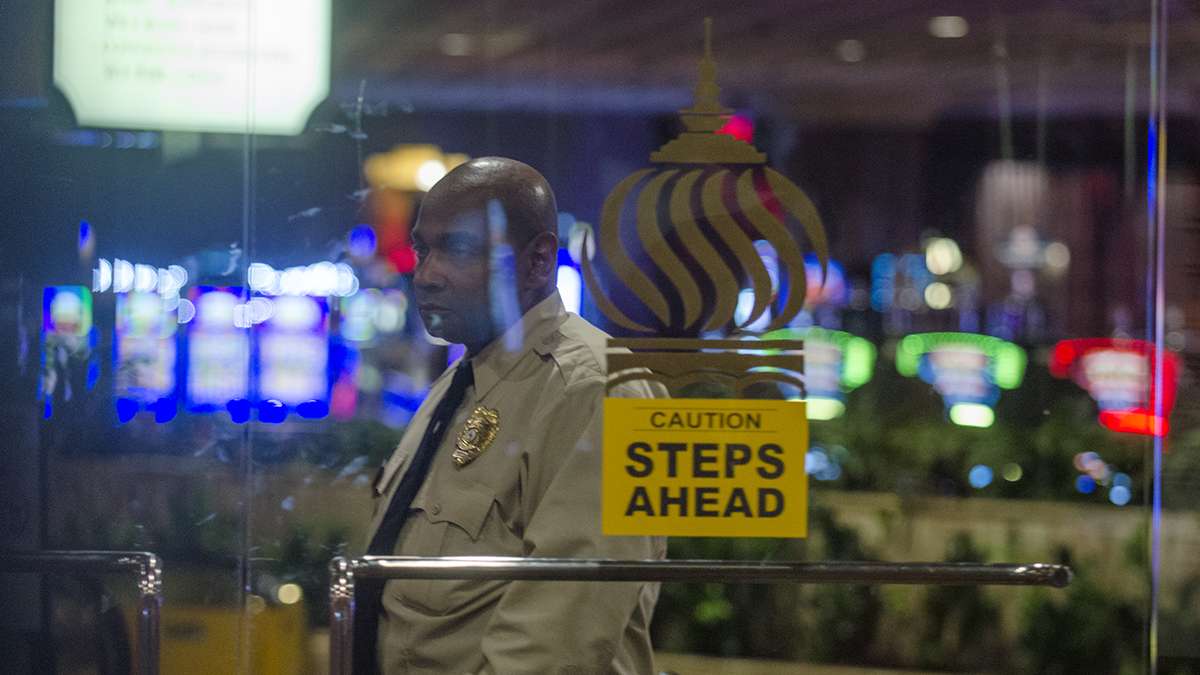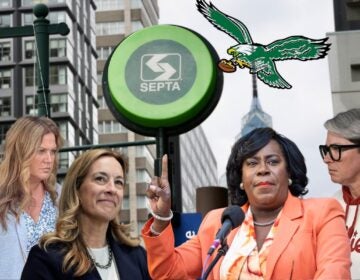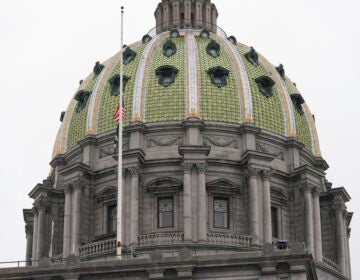Debate bingo players at Temple share what made them ‘weep for America’
As the presidential candidates engaged in a tense second debate on Sunday night, a group of Temple University students gathered for a friendly round of political bingo.
About 35 students sat in the darkened movie theater in the basement of the university’s student center and watched the debate on a large screen.
The squares on the bingo cards — created by the university’s non-partisan Political Science Society, which hosted the event — included: “name-drops more than one swing state,” “yuge,” “interrupts opponents 5 times” and “segue from tax return to emails (or vice versa).” And on each of those, perhaps with the exception of “yuge,” Donald Trump and Hillary Clinton did not disappoint.
Free space in #debatebingo @TempleUniv Poli Sci Club watch party is "statement makes u weep 4 America" @NewsWorksWHYY pic.twitter.com/f1ZzMJGH7B
— Katie Colaneri (@KatieColaneri) October 10, 2016
And then there was the “free space” in the middle of the board, which was for a statement that made the bingo players “weep for America.”
Temple senior Taylor Taliaferro, a registered independent, filled that square when Trump called discrimination against Muslims “a shame.”
“Because a shame is when you drop your ice cream cone before you get a chance to eat it,” said Taliaferro, who is president of Temple’s Political Science Society. “I don’t think Islamophobia or any kind of racism should be considered a shame. It should be considered something that should be taken more seriously. I think that’s kind of brushing it off.”
George Basile, a Democrat and Temple junior, said his figurative weep-inducing moment was when Trump denied Tweeting that his followers should look to a sex tape to judge Alicia Machado, the former Miss Universe who has come out against the GOP nominee for comments he made about her weight and her race.
“For someone to show that inability to recall basic actions that he himself committed shows a lack of competence to be commander-in-chief,” said Basile, the society’s media director.
Ronald Joseph reacted to the “free space” prompt with an overall sense of sadness. Before the 2016 election cycle, Joseph said he observed an “understanding” between presidential candidates, “that you see the other person as someone who you respect, who just disagrees with you on policy issues and certain principals and values.”The final question of the town-hall style debate, asked by an undecided voter in the audience, was for each of the candidates to name one thing he or she respected about the other person. Clinton said it was Trump’s children; Trump said Clinton is “a fighter.”
“The fact that we are asking this basic question is kind of sad,” said Joseph, a junior at Temple and a registered Democrat.
Gerald Murray, a Republican, wasn’t much for the bingo game, but he thought Trump performed better than during the first debate. That’s despite a leaked video of the candidate making vulgar and lewd comments about women that lead many Republicans to repudiate the GOP nominee. Murray, a junior, said he disagreed with Trump’s defense that his comments were merely “locker room humor.”
“It’s unfortunate, but in the grand scheme of things, I don’t think it’s devastating to him,” said Murray, who is evaluating the candidates mostly on their stances on the Middle East and who they would choose to fill the late Supreme Court Justice Antonin Scalia’s seat on the bench.
“I’m not crazy about Trump, but I’ll probably end up voting for him anyway,” he said. “I just trust him more with making Supreme Court picks, which to me is more important than what he could do in the White House.”
WHYY is your source for fact-based, in-depth journalism and information. As a nonprofit organization, we rely on financial support from readers like you. Please give today.



















